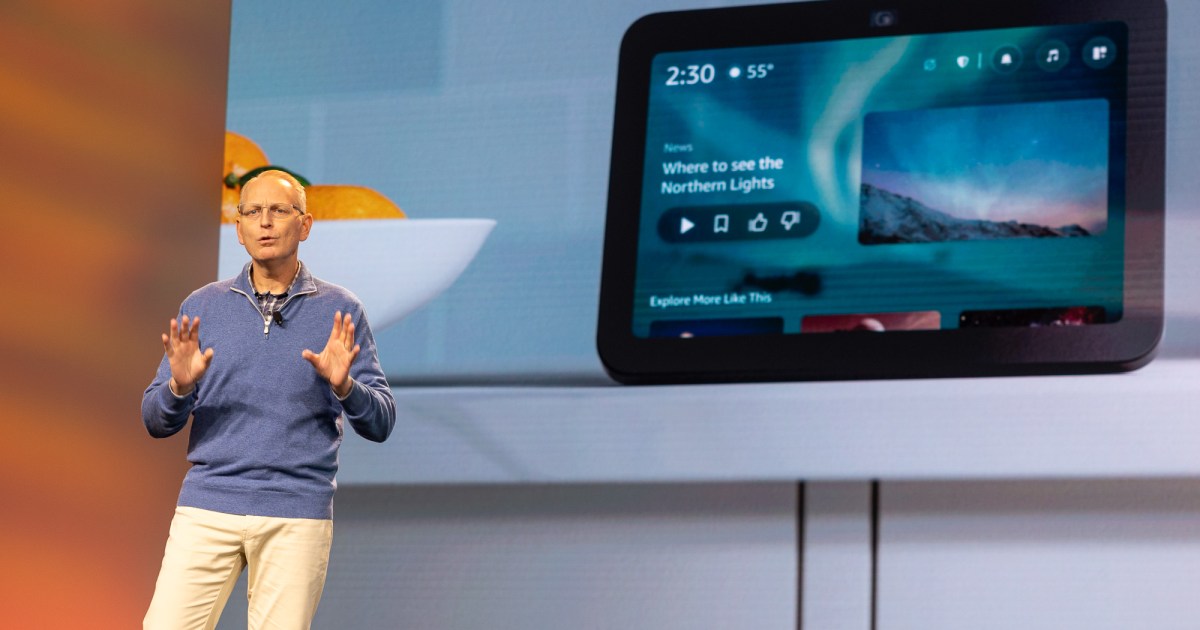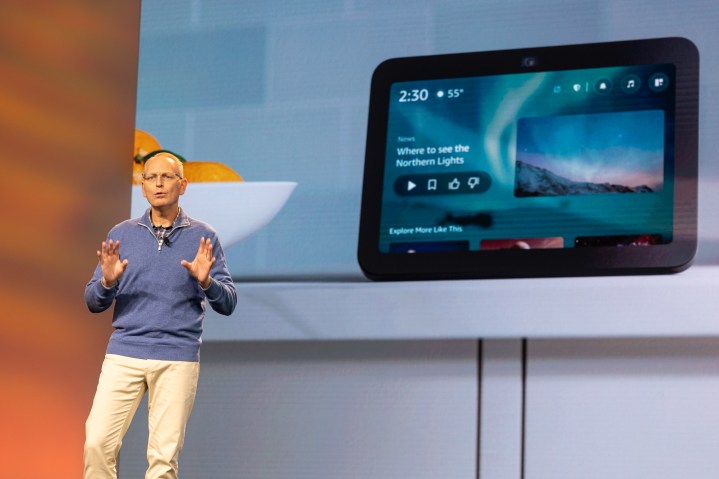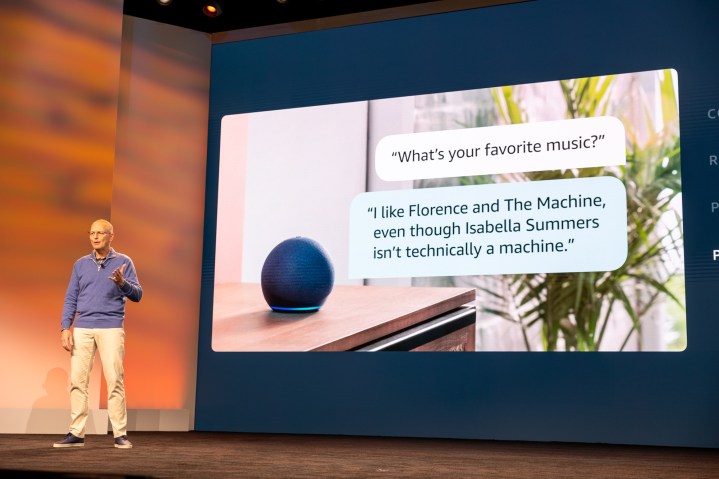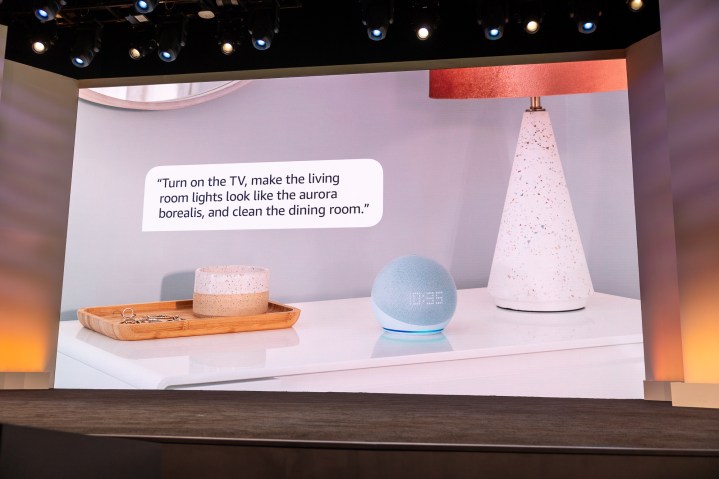
AI in Alexa is the brain transplant we’ve been waiting for
 Phil Nickinson / Digital Trends
Phil Nickinson / Digital Trends
“Alexa, turn the kitchen to cooking mode,” my wife innocently requests.
“What do you mean by cooking mode?” her digital tormentor needles.
“Alexa, cooking mode,” I intervene, uttering the phrase precisely as it was set up in the app.
The kitchen lights brighten as intended, but my wife looks like she’s about to dump the Echo in the trash.
I couldn’t really blame her at this point. In an era when ChatGPT can convincingly mimic a grad student by writing a coherent 1,500-word essay on the themes in Fahrenheit 451 within seconds, Alexa has remained a pedantic 9-year-old waiting to deny you the salt at the dinner table because you didn’t say please.
That all changed – hopefully – on Wednesday, when Amazon used its annual fall devices event to reveal what might be a desperately needed feature: generative AI. And I’m hoping it will save my household from our face-palming relationship with the dim-witted virtual roommate who lives in our speakers.
Inferences to the rescue
If you watched Amazon’s Alexa guru Dave Limp demonstrate the large language model technology at the event, you could be forgiven for waving it off as another AI parlor trick. The “Let’s chat” feature basically just acts like a spoken ChatGPT prompt. Say something, Alexa will respond.
“What are some good sides to go with barbecue chicken?” Dave asks. Alexa recommends some. We’ve seen this before. It’s cute, but I’m not really interested in bantering with Alexa about the Seahawks or hearing its witty quips on Florence and The Machine. The good stuff was buried at the end.
 Phil Nickonson / Digital Trends
Phil Nickonson / Digital Trends
Alexa now makes inferences, which have been the missing holy grail during the assistant’s nearly decade-long existence. To steal an example from Amazon’s presentation, if you install a new smart light in your living room, Alexa should now be able to understand the command, “Alexa, turn on the new living room light,” even if you’ve named it “lamp.”
It’s new. It’s a light. It’s in the living room. Alexa should be able to figure this out, and it finally can. Simple as it sounds, this is an absolute game changer for living with a smart home.
In the case of my opening example, inferences should allow Alexa to understand that I want to run the routine called “cooking mode” in the kitchen, even if my wife doesn’t summon it verbatim with the magic phrase from the app. Phrases like “turn off all the lights except in the living room” are now intelligible to Alexa. And that’s just the beginning.
Amazing what a little understanding can do
AI also uncorks a host of other possibilities. For instance, conversational speech recognition (CSR) means that Alexa should be able to pick up on pauses in speech without assuming you’re done and interrupting. A new automatic speech recognition (ASR) engine means that Alexa should not only understand your words more accurately, but will be capable of recognizing intonation, like excitement or sadness. When you’re in Let’s Chat mode, you can reply to Alexa without saying its name every time, and stack commands as you would when talking to a human: “turn off the lights, open the blinds, and play some jazz.”
 Phil Nickinson / Digital Trends
Phil Nickinson / Digital Trends
And this one’s long overdue: You can create routines by voice now. “Alexa, turn off the porch light at midnight every day.” Boom, done. I can’t count how many times I’ve wanted to set something convenient up, only to defer because I don’t want to mess with the app, and then ultimately forgot to do it.
About time
Will it all work as promised? I think we all know a little better. Even during the live demo, Alexa clammed up in response to some commands and had to be asked again. But if ChatGPT is any indication, generative AI is capable of some truly amazing feats, and Alexa might just be the perfect use case for it. We can be patient.
This is what I’ve wanted from Amazon for years. I don’t need a home security drone, an Alexa microwave, or a half-baked robot that falls down the stairs, I just need Alexa to execute the things it’s already capable of more reliably, easily, and without making me want to feed my Echo into a blender.
Based on Wednesday’s announcements, Amazon finally seems to get that.
Alexa, don’t mess this up.


